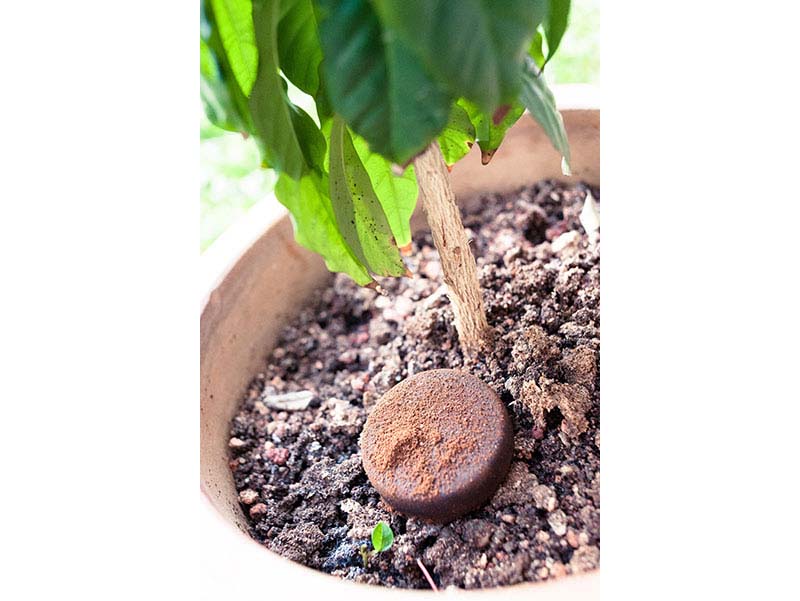Your Cart is Empty

This may come as a surprise to many of you but coffee grounds and gardening go together naturally. Whether you are composting with coffee grounds or using them around the yard, you will find that coffee can give your garden as much of a pick me up as it does for you.
Every time you empty your coffee grounds into the bin, you are throwing away a very cheap, effective, and natural fertilizer that could be used to nourish your garden or indoor growing operation. Not only that, but coffee grounds can also help to cover up obvious smells and defend your crop against parasites and several other pests.
|
Coffee grounds are easily accessible (a lot of coffee houses have even started putting out bags of their used coffee!) and appeal to a wide variety of growers, especially those who are environmentally minded. Coffee grounds are entirely vegan, and using your own grounds or those sourced from the local economy means minimizing the transportation involved. Organic coffee grounds can also be used for those who are especially concerned about pesticide use and aim to keep their garden completely organic. Organic coffee grounds can also be used for those who are especially concerned about pesticide use and aim to keep their garden completely organic. |
 |
Here are some of the main reasons why using coffee grounds in your grow is a fantastic idea.
BOOSTS ACIDITY
Adding fresh coffee grounds to your soil and compost mixes will add to the acidity of the soil. This is useful for plants that thrive in an environment that is slightly towards the acidic side of the pH scale, preferring levels of around 6.0–6.5. Soil pH that is either too high or too low will impede the growth of your plants, so it is important to monitor these levels closely.
Additionally, it’s entirely natural and won’t harm the environment when disposed. To use coffee grounds as fertilizer, work the coffee grounds into the soil around your plants.
Tip: If you rinse your used coffee grounds, they will have a near neutral pH of 6.5 and will not affect the acid levels of the soil.
COMPOSTING COFFEE GROUNDS
Every time you remove the grounds from your coffee machine, they can be added directly to your compost bin. This waste material contains nutrients that will keep your plants healthy and vibrant. When added to a compost bin, as opposed to being dropped directly into the soil, coffee grounds serve as a green waste – it's best if you balance the green waste with some carbon-rich brown compost material such as straw and wood ashes. Such a mix is excellent to generate the heat needed to break down the materials into a good-quality compost.
Coffee grounds provide noticeable levels of nitrogen into the compost mix. This key mineral is vital to plants as it is a major component of chlorophyll, the green pigment that plants utilize in order to conduct photosynthesis. Using coffee grounds will offer your plants a good supply of this mineral and will help to avoid any potentially damaging deficiencies during the grow cycle.
Tip: Coffee grinds will also improve drainage, water retention and aeration in the soil.
COMBATS INVADING PESTS
Perhaps one of the most challenging elements when gardening is pest control and management. Many small creatures have an appetite for the nutrients within your plants and can do a great deal of damage to a crop when attacking in numbers.
Coffee grounds are also great for keeping slugs and snails away from plants. Some people also claim that coffee grounds on the soil is a cat repellent and will keep cats from using your flower and veggie beds as a litter box. The theory is that the caffeine in the coffee grounds negatively affects these pests and so they avoid soil where the coffee grounds are found.
As well as offering defense against critters, coffee grounds are also said to assist against fungal invaders too, such as Fusarium, Pythium, and Sclerotinia.
FOOD FOR WORMS
Worms are an important asset in many gardens and act as little compost producing machines. The worms add the organic materials they are given and their poop, or castings, are used as compost within the garden. Coffee grounds can be fed to worms, as long as they are given other organic materials to form a balanced food intake that isn’t too acidic.